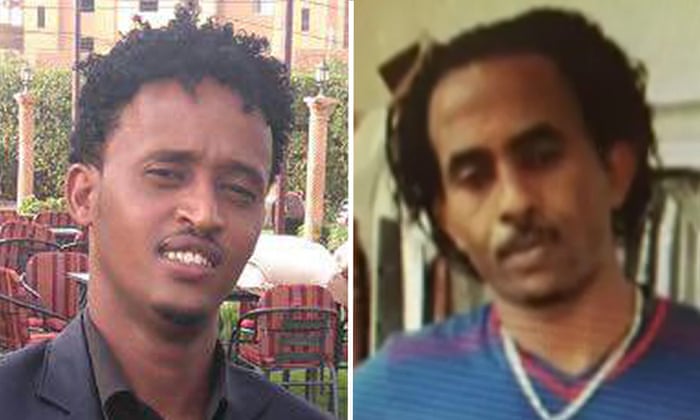Forensic voice experts have presented evidence to a Palermo court showing a man Italian prosecutors have claimed for 18 months to be one of the world’s most wanted people-smugglers is a victim of mistaken identity.
The voice of the Eritrean people-smuggling kingpin Medhanie Yehdego Mered, recorded in 2014, does not match that of the suspect arrested in Sudan last year and extradited to Sicily with the aid of Britain’s National Crime Agency, the experts said.
Prosecutors in Sicily announced the capture of Mered, 35, in Khartoum in June 2016, hailing it as “the arrest of the year”, while the NCA described the detained man as “one of the world’s most wanted people-smugglers”.
But within hours close friends had told the Guardian the man was in fact Medhanie Tesfamariam Berhe, a 29-year-old refugee. Berhe’s family and Facebook account and even Mered’s wife, who has said the detainee is not her husband, have since reinforced the view that Italian prosecutors have the wrong man.
“The result suggests that the detained boy is not the human trafficker Mered,” Prof Milko Grimaldi of the Centre for the Interdisciplinary Research on Language at Salento University told the court on Thursday.
“We have used one the most accurate scientific methods in use around the world. With a margin of error of 1%, there is 99% certainty that Mered’s voice is not that of the man arrested – the highest result that can be obtained from this type of test.”
Italian prosecutors, who have persistently refused to acknowledge they may have made an error, also submitted a voice test in which they too tried to match Berhe’s voice to the wiretaps of Mered.
However, the software they used had no setting for Tigrinya, the language spoken by more than half of Eritrea’s population, and they instead carried out the test using Egyptian Arabic, an unrelated language with a different alphabet and pronunciation.
Egyptian Arabic was “the closest geographical reference population” to Eritrea, the prosecutor’s expert, Marco Zonaro, told the court. But his tests’ wildly inconsistent results meant he could neither confirm nor exclude the possibility that the two voices belonged to the same man.
This latest disclosure is the latest in a series of revelations to raise questions about the prosecution’s case. Last month Berhe’s mother, Meaza Zerai Weldai, travelled from the Eritrean capital, Asmara, to Palermo for a DNA test that showed she was the mother of the detained man.
It was reported in July that Mered had been in jail in the United Arab Emirates on charges of using a forged passport at the time Italian prosecutors travelled to Sudan to arrest the suspect they believed was the people-smuggler.
Prosecutors continue to insist the man captured in Khartoum is Mered despite being unable to find a single witness to testify against him. They have also wiretapped the conversations of a reporter working for the Guardian who has helped expose their alleged error.
The NCA said it could not comment on an ongoing case. Italian prosecutors also declined to comment.






